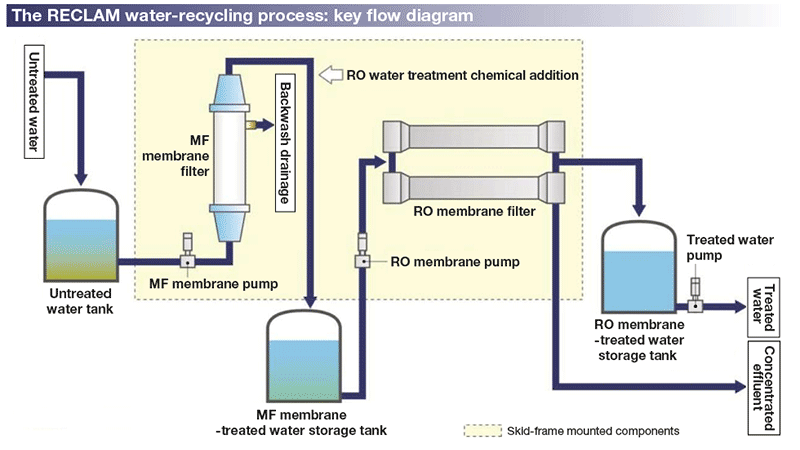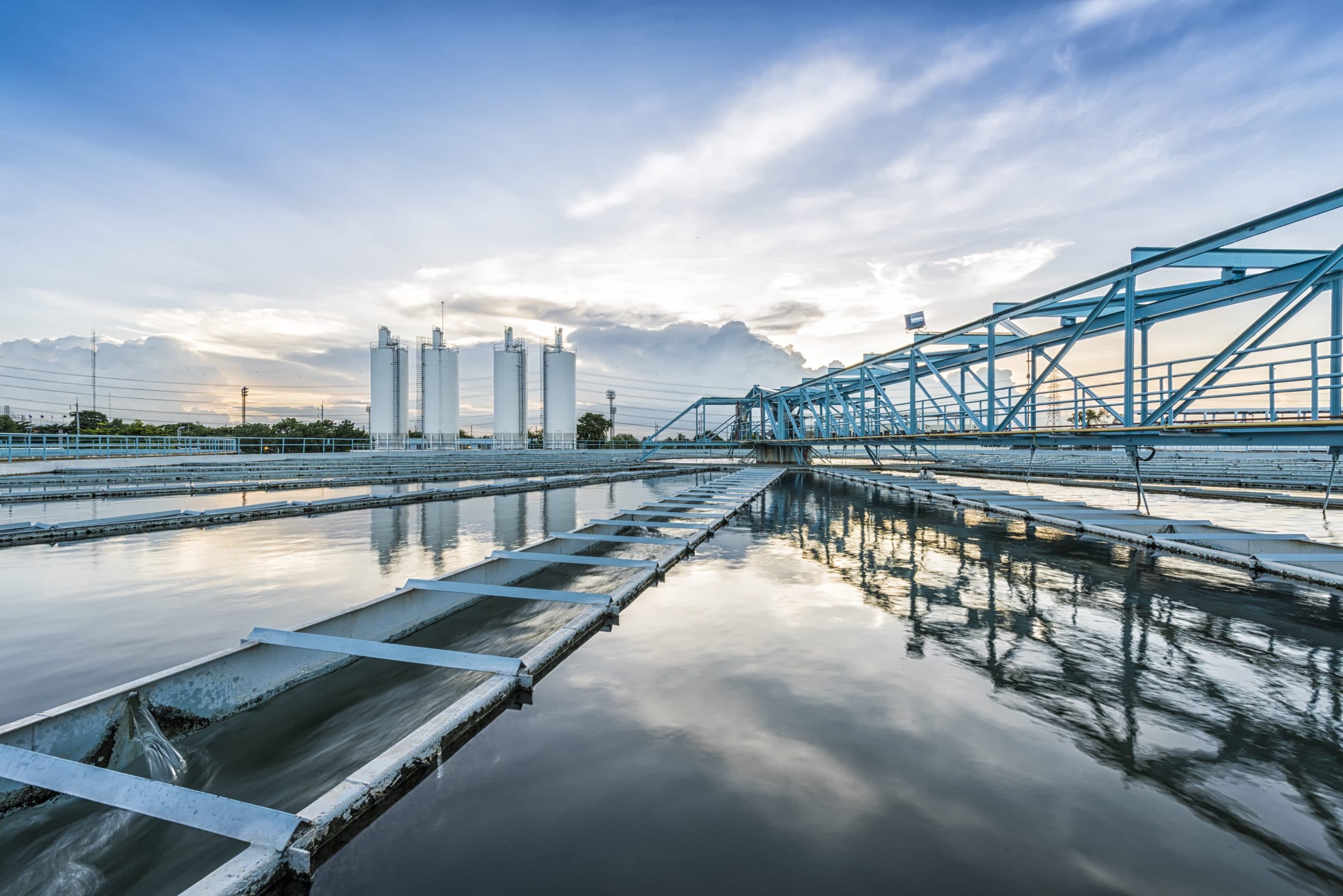Industrial Waste Water Treatment-- Comprehensive Systems for Wastewater Disposal
Industrial Waste Water Treatment-- Comprehensive Systems for Wastewater Disposal
Blog Article
The Duty of Hazardous Waste Water Therapy in Environmental Defense
The reliable treatment of industrial wastewater is increasingly recognized as a keystone of ecological security, serving to mitigate the detrimental influences of contaminants on water communities. As industries evolve and increase, the need for durable wastewater monitoring services becomes extremely important to make certain compliance with environmental laws and promote sustainable techniques. This necessitates a closer exam of the treatment refines utilized and their effects for both environmental health and source recovery. Recognizing these dynamics elevates important questions concerning the balance in between industrial development and ecological honesty, triggering more exploration of the courses forward.
Importance of Waste Water Therapy
The significance of wastewater therapy can not be overemphasized, as it plays a crucial duty in shielding public health and wellness and the setting (Industrial Waste Water Treatment). Efficient wastewater treatment systems are important for getting rid of pollutants from commercial discharge, therefore preventing dangerous materials from getting in all-natural water bodies. This procedure minimizes the risk of waterborne diseases, which can occur from without treatment wastewater, and safeguards area wellness
In addition, treated wastewater can be securely recycled in various applications, such as watering and commercial processes, advertising sustainable water administration methods. By recycling water, markets can considerably decrease their freshwater usage, adding to resource conservation.
In addition to health and wellness advantages, wastewater therapy is important for protecting marine communities. Contaminants in unattended wastewater can lead to the degradation of water high quality, hurting marine life and interfering with ecological balances. By treating wastewater before discharge, industries assist maintain the stability of regional environments and advertise biodiversity.
In addition, regulatory conformity is a key aspect of wastewater management. Sticking to recognized environmental standards not only avoids legal repercussions but also enhances a business's credibility as an accountable company person. Basically, effective wastewater therapy is vital for safeguarding public wellness, securing the setting, and advertising lasting commercial practices.

Sources of Industrial Waste Water
Industrial wastewater originates from a range of resources, each contributing to the complexity of treatment processes. Primarily, these sources include producing facilities, refineries, and handling plants, which produce effluents as a byproduct of their operations. Industries such as textiles, drugs, food and beverage, and petrochemicals generate considerable quantities of wastewater, frequently loaded with contaminants including heavy steels, natural substances, and nutrients.
Along with manufacturing, farming tasks add to industrial wastewater via drainage and effluent from livestock operations and plant processing. The meat and dairy markets, specifically, are understood for launching high degrees of biochemical oxygen need (FIGURE) and microorganisms.
Additionally, mining and mineral processing activities create wastewater containing suspended solids and harmful chemicals. Power generation plants, particularly those using fossil gas, also add wastewater via cooling down systems and chemical cleansing procedures.
Each of these resources provides one-of-a-kind obstacles pertaining to the structure and volume of wastewater produced, requiring customized therapy solutions to mitigate their ecological impact. Comprehending the varied beginnings of industrial wastewater is essential for creating efficient monitoring strategies focused on shielding water sources and advertising lasting commercial techniques.
Treatment Processes and Technologies
Effective treatment processes and innovations are essential for managing industrial wastewater and reducing its ecological influence. Different techniques are utilized to eliminate impurities, adapt to various wastewater attributes, and abide by regulative requirements.
Physical therapy processes, such as sedimentation and purification, help with the elimination of suspended solids. These techniques are usually made use of as initial steps to lower the tons on subsequent treatment stages. Chemical therapy, including neutralization, coagulation, and flocculation, addresses liquified toxins by changing their chemical homes, making them easier to divide from water.
Organic treatment technologies, such as turned on sludge systems and biofilters, use microorganisms to break down organic matter and nutrients. These approaches are especially efficient for naturally degradable waste streams, advertising the all-natural decomposition procedure. Advanced therapy innovations, such as membrane layer filtering and progressed oxidation procedures, deal enhanced elimination performances for tough pollutants, including heavy metals and consistent natural compounds.
Each of these treatment procedures can be configured in different combinations to create tailored solutions that fulfill particular industrial requirements. The option of technology depends upon variables such as the kind of wastewater, desired treatment outcomes, and financial considerations, making certain that industries can operate try this sustainably while minimizing their environmental footprint.
Environmental Advantages
Applying robust wastewater therapy processes not only makes certain compliance with regulatory criteria yet additionally produces substantial ecological benefits. Efficient therapy of commercial wastewater minimizes the discharge of dangerous pollutants right into all-natural water bodies, therefore shielding water communities. By eliminating poisonous materials, hefty metals, and virus, these processes assist keep biodiversity and promote much healthier environments.
In addition, dealt with wastewater can be repurposed for different applications, including irrigation and commercial processes, reducing the demand for freshwater resources. This reuse not just conserves water however also reduces the anxiety click this on local water products, which is specifically essential in water-scarce regions.
Moreover, effective wastewater therapy mitigates the threat of dirt and groundwater contamination, ensuring the stability of neighborhood environments. Industrial Waste Water Treatment. By avoiding the infiltration of hazardous substances, industries add to the total wellness of bordering communities and ecological communities, enhancing public trust fund and fostering sustainable industrial methods
Regulative Structure and Conformity
A comprehensive governing framework governs the treatment of commercial wastewater, ensuring that markets follow stringent conformity criteria. Various national and neighborhood laws, such as the Tidy Water Act in the United States, stated limits on the discharge of pollutants into water bodies. These guidelines are developed to protect marine environments and public health by mandating that sectors implement ideal treatment modern technologies.
Compliance with these laws usually entails getting licenses, conducting normal tracking, and reporting discharge degrees to governing authorities. Failure to comply can lead to significant penalties, including fines and operational limitations, thus incentivizing industries to embrace finest methods in wastewater management.
Along with governmental laws, lots of markets additionally follow voluntary criteria and qualifications, such as ISO 14001, which advertise lasting environmental monitoring methods. Stakeholders are progressively promoting for enhanced openness and accountability in wastewater management, pushing for more stringent enforcement and even more rigorous reporting requirements.
Inevitably, a durable regulative framework not just serves to alleviate ecological threats but likewise promotes a society of sustainability within the commercial industry, encouraging continual improvement in wastewater treatment processes.
Conclusion

The reliable treatment of industrial wastewater is increasingly acknowledged as a cornerstone of ecological defense, serving to minimize the damaging effects of pollutants on aquatic communities. Reliable wastewater treatment systems are essential for getting rid of impurities from industrial discharge, thus stopping dangerous substances from entering all-natural water bodies.Industrial wastewater originates from a selection of sources, each contributing to the intricacy of therapy processes. Efficient therapy of commercial wastewater decreases the discharge of damaging toxins into natural water bodies, thereby securing aquatic environments.In verdict, commercial wastewater therapy is important for protecting ecological stability and promoting lasting water administration.
Report this page